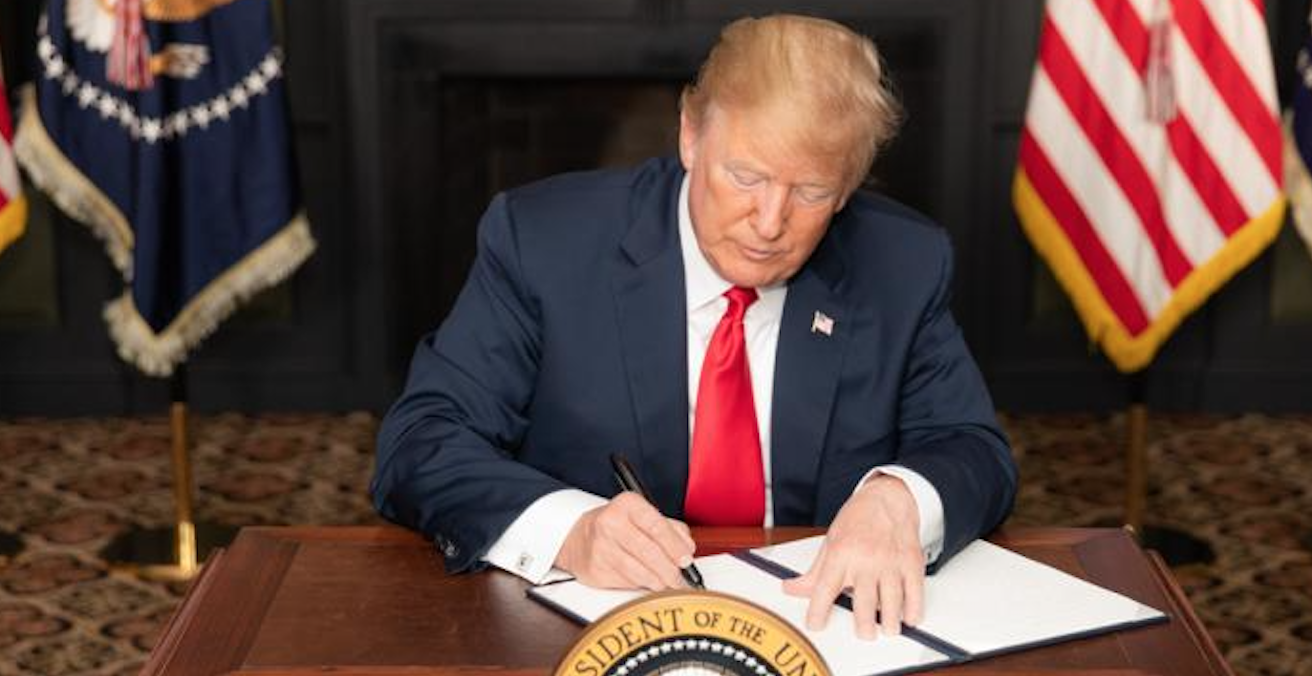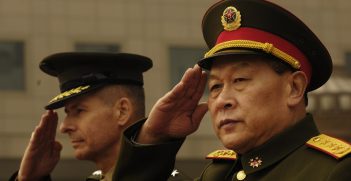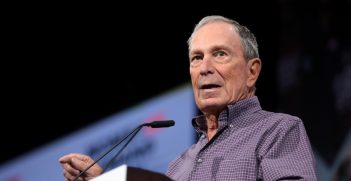Iran: Nuclear Deal under Maximum Pressure

The 2015 Joint Comprehensive Plan of Action (JCPOA) — the deal curtailing Iran’s nuclear activities — has been under strain since the US unilaterally decided to withdraw in May last year.
The International Atomic Energy Agency has continued to find that Iran is complying with its obligations. The other parties — China, France, Russia, UK, Germany, the EU, and most critically Iran — remain committed, but the promised benefits to Iran are greatly diminished, and the deal is now under severe threat.
Last month the US increased pressure on Iran by not extending the now expired oil import “waivers.” The stated goal: to “bring Iran’s oil exports to zero.” The waivers had permitted China, India, Japan, South Korea and Turkey, amongst others, to import oil without incurring US secondary sanctions. While most have already reduced dependence on Iran as a precaution, the tightening will nevertheless be very damaging to Iran’s economy.
In tandem, the US has responded militarily to meet unspecified security threats to US interests in the region. Non-essential US staff have been withdrawn from Iraq. The USS Abraham Lincoln Carrier Strike Group was redeployed ahead of schedule from exercises in the Mediterranean Sea to the region to send Iran “a clear and unmistakable message.” Further, the Strike Group has been strengthened with an additional vessel and a Patriot Missile Long-Range Air-Defence System.
The war of words has escalated, recalling the rhetoric leveled at Pyongyang before the June 2018 Trump-Kim Singapore summit. President Trump has seemingly learned from Machiavelli — or President Nixon — that sometimes it is useful to simulate madness. He was reported to say that he did not want war with Iran, and then issued a denial. On 17 May the President added to the dangerously confusing and conflicting messaging: “With all of the Fake and Made Up News out there, Iran can have no idea what is actually going on!” Later, he also sent a tweet saying that if Iran wanted to fight that will be the “official end” of Iran.
President Trump has pilloried his predecessors for their Middle East failures. Current US force levels in the region are far below those of the Iraq invasion, but they are certainly capable of surgical strikes. Trump’s own quagmire could start there.
US National Security Adviser John Bolton wrote in 2015 that the inconvenient truth was that only military action “can accomplish what is required,” citing the Israeli destruction of reactors in Iraq and Syria. However those facilities were not operational. The Arak reactor is still not operational so that may be Bolton’s target of choice. The JCPOA provided for the facility to be disabled and re-purposed. A strike on the US-supplied research reactor in north Tehran, would involve major radiation releases and would incur totally justified condemnation. Rather than bombing, the US is likely to be looking at cyber options, building on earlier successful operations against Iran’s key enrichment plant.
Other targets could include those the US considers are abetting regional terrorism. In April the US declared Iran’s Revolutionary Guard Corps (IRGC) a foreign “terrorist organisation.” The IRGC is a powerful state within the state, responsible for protecting the Islamic regime from internal and external threats, linked to Hezbollah and Hamas.
Iran’s response
In recent days there have been attacks in the Gulf on Saudi oil tankers and Iran backed Houthi forces have reportedly carried out drone attacks on Saudi oil pipelines. Iran no doubt is wanting its US-backed Gulf state rivals to pay a price for benefitting from the chocking of its own oil revenues.
Iran’s American-educated and highly-effective Foreign Minister Mohammed Javad Zarif is walking a tight rope. In February this year he announced his resignation, which was not accepted. That has strengthened his hand domestically, but his political future hinges on the success of the JCPOA, an achievement which gave him high profile at home and internationally.
Iran is working with the remaining JCPOA parties to salvage what it can of the deal. Recently Zarif visited Russia, India, Japan and China — each of which are vital to Iran’s hopes of economic relief after decades of sanctions.
However, other forces in Iran are showing signs of impatience. The Tehran Times reported last week that Iran’s Supreme National Security Council had decided to stop implementing parts of its obligations on the sensitive issues of enriched uranium and heavy water production. The report added that Iran had given Europe 60 days to ensure Iran’s economic interests lest further measures be taken. Iran’s Ambassador to the United Kingdom is reported to have explained that any action Iran took would be consistent with the JCPOA. This is ominous not reassuring: the JCPOA contains a clear statement of Iranian intent that if sanctions are reinstated, in whole or in part, Iran will cease “performing its commitments” in whole or in part.
Other reactions
The Europeans have affirmed their commitment to the JCPOA and have initiated measures to protect EU nationals from the impact of extraterritorial sanctions. The EU and Iran have also been working to create a ‘special purpose vehicle’ to facilitate countertrade with Iran thereby avoiding currency transactions targeted by US sanctions. Almost a year on, the details have not been fully settled.
However there is considerable scepticism about whether these mechanisms will help in any significant way: in practice, most traders have had to choose between dealing with the US or Iran — with predictable results. Iran has welcomed EU intentions but reasonably points out that the promised economic benefits from the JCPOA are not being realised.
President Putin has committed to supporting the deal, but also made clear that the US is the source of the problem and should also be the main source of the solution: Russia is not a “fire-fighting squad” capable of fixing all global issues. China, a major trading partner, has also assured Iran of its continued support but must also balance its ties with Saudi Arabia. Russia and China will not make up for the lost economic benefits from the US and EU.
The JCPOA retains wide international support. Japan, traditionally an important economic partner of Iran, has supported the agreement and offered to mediate between Washington and Tehran. Australia too should be renewing its support, pressing Washington, engaging Tehran and exploring avenues for protecting Australian interests from US secondary sanctions.
The prospects
The US policy approach of maximum pressure has the backing of Israel, Saudi Arabia and UAE but is uniquely alienating its allies in Europe and the Asia Pacific. The JCPOA offered Iran a solution to its worsening economic situation. Staying with it will increase the pressure on Washington to exercise restraint and will preserve Iran’s relations with the EU. Iran has demonstrated it can survive strong sanctions and no doubt, if pressed, will do so again. However, with the US withdrawal and the likelihood that other partners will not meet Iranian expectations for economic collaboration, Iran could well walk away from some or all of its undertakings.
The US and regional partners, as well as Iran and its partners, seem destined to a low-level tit-for-tat conflict. This could be costly and disruptive to global trade. It is hard to see how the nuclear deal could survive an escalation. It would take us back to nuclear brinkmanship and to the renewed threat of proliferation in the Middle East.
President Trump needs to quickly find a creative way to return to the table with Iran. The DPRK model of engagement is not yet a guaranteed approach, but it is better than none.
John Tilemann is member of Asia-Pacific Leadership Network on Nuclear Non-Proliferation and Disarmament. He is a former career diplomat and was chief of staff to IAEA directors-general Hans Blix and Mohamed ElBaradei.
This article is published under a Creative Commons Licence and may be republished with attribution.





